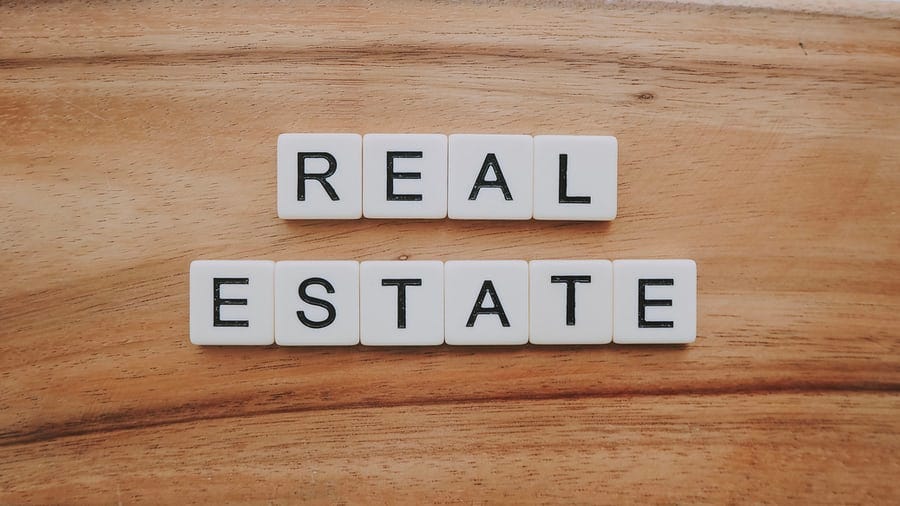Real estate is a robust investment choice that offers a plethora of opportunities to strengthen and diversify one’s portfolio. Along with stocks, it is the most concentrated asset class amongst millionaires and beyond.
Compared to securities or fixed-income via the secondary market, real estate comes in different shapes and sizes.
Ever since I signed the dotted-line to officially start earning rental income in the midst of the pandemic in March of 2020 when New Yorkers were fleeing the city, I became heavily invested in real estate and currently own a physical tangible property, my 40 crowdfunding deals that are composed of commercial, residential and subdivision properties across America via Fundrise and 3 REITS which in total take up roughly 40% of my entire portfolio and are only growing.
June was the first month since the pandemic started when the housing market cooled off for a bit. More homes were back on the market, prices stagnated and less people moved across coasts. Yet that doesn’t mean brokers were gone. Officially there are more brokers in the U.S. than homes and according to my book, if you really want a good deal, you shouldn’t always go with a broker or helper of any sorts. Same case with a portfolio manager. You can let them do the work for you yet as a result, you would have to pay a whooping 2–5% on your AUM or 15% as the closing fee on a home! No thank you.
Even as homes are becoming less frothy in the dogs days of summer, as we’ve all witnessed, this is one of the craziest times to buy anything. Staple goods to hotel rooms are rising and not keeping up with wages. We are paying more for everything and not equally compensated in many roles, specifically for service, essential and blue-collar workers who do the dirty work to keep the city running smoothly.
I have true admiration for these civilians. Sadly during any recession they are hit the hardest and are forced to adjust the most. From eviction notices to keeping up with crazy shifts, there’s real stress on the line. There’s no doubt the economy could’ve been able to get back on its feet through this recovery if they weren’t involved. Although the stock market doesn’t seem to be all that correlated to the economy which exacerbates the divide between social classes, service workers keep investors content, on their feet ready to transact more heavily and lead the markets to all-time highs as companies are doing exceptionally well. If you want to get in on the action, your first step is to start investing. It isn’t only for a select portion of the population it just feels like it since they got a head start and the top 10%+ pour majority of their wealth into it. It’s the easiest way towards financial freedom even as a minimum wage worker.

Most Real Estate Isn’t Real
If you want to snag a great deal on a physical property, there are dozens of factors to consider and it isn’t as easy as clicking a button to buy a few shares of a mall across the country. Physical real estate is appealing to most real estate holders since it is an alternative investment class yet is becoming less popular due to sky-high unrealistic prices, maintenance, wasted hassle with tenants, vacation time and recovery from the pandemic and lack of diversity located in the same area.
Most rentals, including mine, tend to be no less than one state away from the owner so they can check up on their business (renters) and always be on speed-dial if they need anything. As with portfolio managers and brokers, a management company is happy to take care of your rental but once again as mentioned above, that added cost eats into the cost big time.
All in all, having exposure to all kinds of real estate will most likely boost returns in your portfolio by an estimated 10–30% yoy on a good year like in 2020. Not guaranteed but that’s the historical return. Real estate just slightly trails the S&P 500. Physical real estate offers true security as opposed to securities based on supply and demand in the market. Investors will always crave utility as a part of an investment plan and similarly to art or collectibles, owning something is the most powerful thing you could feel as an investor.
Now is not the time to move yet my best rule is if you need to, then move no matter what rate mortgages are at or what kind of inventory is out there. The worst time to buy is when everyone else is, if there’s a seller’s market or stellar low-mortgage rates a.k.a what’s been happening for the past 18 months thanks to the Fed’s stimulus. This leads to massive regret. Buying during these ‘cheap times’ entails the buyer weighs these factors more heavily to justify their decision instead of the legitimate reason on why they should really move.
Buying a property is one of the most expensive and emotionally exhaustive decisions you will ever make. From moving to closing fees, escrow to signatures, all the non-refundable costs add up and make it a hassle. Luckily, real estate has worked wonders for millions’ portfolios and helped me earn an extra $110k this past year and half which you can learn about here.
How does that work?
I avoided and invested my time into what matters.

Alternative Real Estate Opportunities
Unfortunately, most Americans cannot even afford their single primary residence, let alone rent. 11 million people were behind on their rent this month, a year and a half after the pandemic began pumping stimulus into bank accounts.
This is a result of poor planning, emergency savings cash reserves, not living below one’s means and education. Simple as that yet people refuse to prepare, learn from ’08, save more and earn less and as a result, risk their lives.
Real estate is clearly a sticky and tricky market but one that is still recommended for everyone’s portfolio, besides renting since it’s a -100% return.
We all know the advantages of it and although physical real estate can get costly with tenants to repairs, as with most things in life in the long run, the hard work does pay off.
But I get it, you still want that diversification, hedge against inflation, utility (grows the more you use something), less volatility, higher return with less risk, relationship/networks with tenants, tax-advantage of owning a business (managing a rental) and alternative investment exposure in your portfolio without the hassle.
Luckily, you can still get all of this without looking to buy a real space.
There are several great sites that offer the opportunity for an investor, accredited or not (one with a net worth more than $1m and salary <$200k) to get into booming real estate.
18-hour cities of Charlotte to Austin, Miami and Vail became hot spots, different kind, throughout the pandemic as white-collar workers had the flexibility to work from home and migrated to places that offered a lower cost of living, better climate, more space and flexibility to get a better bang for their buck.
While 24 hour cities of New York to LA surprisingly are now coming back hotter than ever as covid transmissibility concerns have declined, inoculation rates have increased, financial office buildings are packing up and rates are still decent for now.
As someone who manages a rental property only a few blocks away from my residence in Manhattan, I wanted to diversify out of New York, even out of the east coast. There’s immense demand, vibrancy and opportunities in the Midwest and South I wanted to explore. I call this the heartland of America where deals are harder to find and Americans are flocking to these cities like pelicans swarming bait.
Through Fundrise and Crowdstreet (not sponsored — all my recommendations), I’ve been able to rack up 40 different properties that these companies have invested in themselves. Some are newly built, others in contract and the rest are subdivisions owned by these companies and leased out to homeowners (renters). There’s no additional costs of maintenance and repairs or awkward check ups with renters. One thing to note is that if you need the capital (cash) right up, there is a lock-up period that ranges for a couple of months to possibly years.
Real estate is a long-term investment for a reason, except for eREITS which are securities that trade on the secondary exchange and operate the same way as stocks and bonds but can be sold anytime, with tax on-top.
Now that we’ve identified diverse real estate strategies beyond the classic home via the stock market and online, what are some of the biggest mistakes people make when it comes to investing in real estate?
#1 Not understanding what properties are!
Commercial to residential are the most common forms
#2 There are 2 kinds of apartment buildings in most cities:
Condos + Co-Ops
Condos:
-Typically more expensive
-No major background check besides deposit and certification able to keep up with HOA
-No oversight board
-More amenities
-More diverse, international presence of buyers since more expensive prefer to park money abroad in case gov’t steals it
-No control over neighbros or office to handle complaints
-More amenities
-Can rent or buy
Co-Ops
-Less expensive
-Typically mostly buyers, sometimes cannot rent
-Oversight board who conducts interview to make sure you are suitable reliable and trustworthy neighbor
-Tend to restrict students, foreign buyers and anyone without a reliable source of income since they prefer corporate stable income (influencers, YouTubers, freelancers, entrepreneurs)
-Less amenities
-Immediate help with complaints from noise control to leakage from super
-Own “shares/unites” of an apartment instead of the property in full
In addition:
-Understand that getting into real estate isn’t an immediate investment or given asset-takes at least 3–5 years to earn return if maintained well and sold 2–5x above purchase price
-Adding on amenities such as a pool or garden may work for you but may be a deal breaker when it comes to selling the property if it disinterests a potential buyer
-Paying too close attention to design, furniture, staging instead of on core design, functionality, features and durability/usability can harm the hunt
-Cannot rush the process and it’s ideal to visit at leat 20 properties. There’s no such thing as ‘the one’
-Not having an emergency fund with 6–12 months of expenses — things come up especially in a home!
-If you’re buying it purely to rent it out, it may be best to buy a fixer-upper instead.
-Buy utility, rent luxury — renting is -100% return but if you use the property at least 10x months out of year, it’s smarter to do so
Hopefully this article has encouraged you to diversify your holdings and reach out of your comfort zone to discover the power of house hunting beyond the traditional options. Real estate can be a hassle if you make it one.
Stay diversified, curious and persistent. There’s always a deal out there waiting for you.

